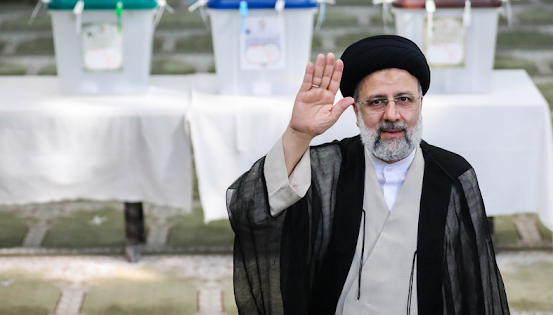Iran is a country steeped in political intrigue and tradition, and the sudden death of President Ebrahim Raisi in a terrible helicopter crash has had a dramatic effect on the country's social fabric. The mourning phase has been a period of introspection and a turning point for Iran's political destiny. It has been characterized by large public meetings and a sense of national sadness.
Election-related Stress Increases
When the somber funeral rituals come to an end, focus soon turns to the June 28 election. The conservative side has stepped up the Guardian Council's candidate screening procedure in an effort to install a successor who is supportive of Supreme Leader Ayatollah Ali Khamenei. The Council's choices will have a significant impact on how elections are framed and the ideology of Iran's future leader.
The Contestants Show Up
A wide range of politicians have surfaced, keen to take Raisi's place. A close ally of Khamenei, interim president Mohammad Mokhber is a formidable opponent who is using his current position to garner support. Known for his practical approach, Speaker of the Parliament Mohammad Bagher Ghalibaf brings a wealth of legislative expertise to the contest. The competitive environment is enhanced by former officials and technocrats, each of whom has a distinct vision for Iran's future.
Notably, former nuclear negotiator Saeed Jalili, who leans extreme on both domestic and international problems, has announced his candidacy. On the other hand, centrist Ali Larijani, who is regarded for his political moderation and reformist inclinations, and former foreign minister Mohammad Javad Zarif, who is known for his involvement in the 2015 nuclear deal, are examples of moderate candidates.
The Factor Ahmadinejad
One other intriguing aspect of the election is the mysterious former president Mahmoud Ahmadinejad. His goals are still unclear, and both his admirers and adversaries are closely observing his political moves. Given Ahmadinejad's populist appeal and controversial tenure, his possible entry into the contest might drastically change the political landscape. His participation might further divide the electorate and add additional unpredictability to the already complicated dynamics of the race.
The Disturbance's Shadow
rallies and public discontent have plagued Iran's recent past, most notably the countrywide rallies that followed Mahsa Amini's murder while detained. Iran's protesting population has a crucial opportunity to impact the country's future by participating in or abstaining from the impending election. The general unhappiness of the populace, which is being driven by political repression, economic hardship.
International Relations' Function
The result of the election will have a significant impact on Iran's relations with other countries. The foreign policy position of the incoming president will be critical given the current state of tensions with the US and other regional enemies. Hardliners like Jalili, who want a more aggressive strategy, stand in stark contrast to candidates like Zarif and Larijani, who support diplomatic engagement. The outcome of the election may intensify current tensions and isolation or open the door for new talks and possible sanctions lifting.
The world waits in nervous anticipation as Iran finds itself at a crossroads. In the face of persistent tensions and economic difficulties, the result of this election will influence Iran's foreign policy in addition to its internal policies. The global landscape will be affected by Iran's decision, highlighting the relevance of the vote for a successor.
Intense discussion and conjecture have been generated by the political unpredictability that followed Raisi's passing and the approaching election. Iran is going through a turning point that might change the course of the nation for years to come. Iran's future will be largely determined by the electorate's involvement, the Guardian Council's decisions, and the political campaigns' tactics. This election is more than just a political competition; it's a pivotal moment that will determine the course of the country and its role in the world.

